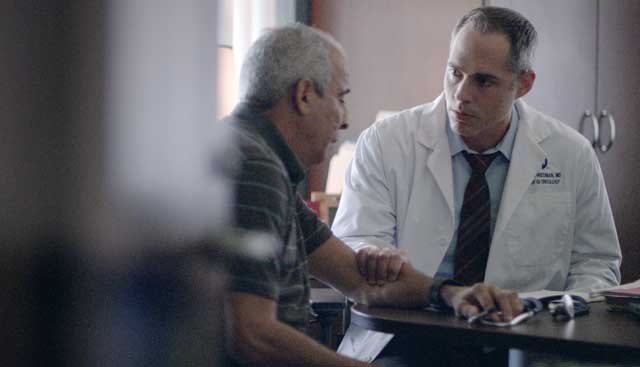
Five Myths About Colonoscopies
There are many reasons why people are hesitant to undergo a colonoscopy. However, some of these reasons are myths that might prevent a person from undergoing a routine test that could detect early stage colon cancer and ultimately save lives. We spoke with Dr. Mark Friedman, a gastroenterologist in the Gastrointestinal Oncology Program at Moffitt Cancer Center, to tackle these myths about colonoscopy and colon cancer.
1. A colonoscopy is painful and the preparation is terrible.
A colonoscopy is a pain-free procedure that is usually done under anesthesia. The patient is asleep during the exam and typically unaware that the procedure is happening. Patients continue to breath on their own during the exam and are very comfortable. A clean colon is essential to an effective colonoscopy. There are multiple variations in preparation, all of which are effective, safe and palatable. It is important to discuss with your physician what is the most effective prep for you.
2. A colonoscopy does not do much in preventing colon cancer.
Most colon cancers arise from adenomas or precancerous polyps. These polyps progress from small to large, and then from dysplasia, or pre-cancerous changes, to cancer. A colonoscopy allows for removal of small pre-cancerous polyps and therefore prevents their development to colon cancer.
3. I do not necessarily need a colonoscopy.
Both men and women are at risk for developing polyps and therefore colon cancer. Adenomas, or precancerous polyps, can develop in 30 percent of men and 20 percent of women. The prevalence of polyps increases with age. Therefore even older individuals should keep up with colon cancer screening. Colon cancer screening for a normal risk patient should begin at age 50. African-Americans are at higher risk for colon cancer and should start routine colon cancer screening with a colonoscopy at an earlier age, typically at 45 years old. If you have a family history of colon cancer you should speak with your physician about when to begin routine colonoscopy screening.
4. There is a high rate of complications associated with colonoscopies.
This is not true. Serious harm occurs in only 2.8 per 1000 exams. The risk of perforation, or a hole in the bowel, during a screening colonoscopy is 0.01 percent to 0.1 percent. The risk of bleeding during removal of large polyps is 1-2 percent, and the risk of death during a colonoscopy is 0.007 percent.
5. Screening colonoscopies are expensive, and I won’t be able to pay for them.
A screening colonoscopy is covered by insurance. The out-of-pocket cost to the individual is usually minor. Patients should discuss with their insurance companies what their out-of-pocket costs might be.
What Else Should I Know:
How often should people undergo a colonoscopy for colon cancer screening and when should this begin?
Average risk individuals should begin colon cancer screening at the age of 50. The follow up interval for a repeat colonoscopy is typically determined based on what is found on the initial colonoscopy. If you are a patient who is considered high risk, you should discuss with your physician when your colon cancer screening should begin.
What colon screening services are offered at Moffitt Cancer Center?
A colonoscopy is the most accurate and effective screening for colon cancer and you don’t need a referral for a screening at Moffitt. If you’d like to speak with one of our physicians about a colonoscopy screening, call 1-888-663-3488 or complete a new patient registration form.
